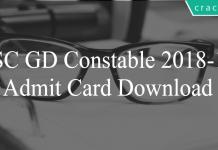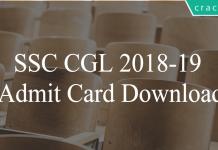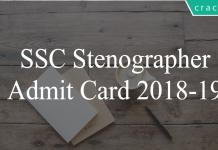Contents
Number system for SSC CGL:
Quantitative aptitude accounts for about 250 marks out of the total 600 marks in SSC CGL. Number system is an important topic in the quantitative aptitude section. This blog is about how to prepare number system for SSC CGL exam.
Every year, SSC asks around 3-5 questions from this topic. SSC asks 3-5 question from basic maths too. Number system forms the basis for studying other topics. Hence, it is important to be thorough with number system for SSC CGL. Online preparation for SSC CGL will allow aspirants to prepare at their pace.
100 SSC CGL (latest pattern mocks) – Rs. 199
SSC CGL Free Study Material – 18000 Questions
Aspirants can solve previous year papers of SSC CGL to get a taste of the exam. Having a strong hold of number system will help in solving problems from other sections too.
SSC CGL free mock test will help aspirants to know where they stand and the areas that need to be worked on. Let us have a look at topics that aspirants must master while preparing number system for SSC CGL.
Topics to prepare in number system for SSC CGL:
Start with the basics and move up the ladder. Even if you know the basic concepts, start from them. Chances are there you might have forgotten some important implications of terms.
Number line:
Learn how to express numbers on the number line. Try visualising addition and subtraction of terms on the number line.
Integers:
Numbers that don’t have a decimal part are called integers. It includes zero and both positive and negative terms. Hence, it is essential to read the question properly to figure out what it asks for. Eg) The term ‘positive integers’ is different from ‘non-negative integers’.
Fractions:
A fraction contains a numerator and a denominator. Fractions are classified into
1.Proper fractions – (Numerator < Denominator, i.e, value<1)
2.Improper fractions- (Numerator > Denominator. i.e. value >1)
Mixed fractions are just a way of representing improper fractions.
Decimals:
Numbers that have numbers after the decimal point are decimals. Fractions can be converted to decimals. The vice versa is not always true.
Note: The set of all integers do not include fractions are decimals.
Download SSC CGL 2018 Syllabus PDF
Natural Numbers:
Counting numbers are known as natural numbers. Natural numbers is another name of positive integers.
Whole numbers:
Whole numbers contain 0 in addition to natural numbers. Non-negative integers are known as whole numbers.
Rational and irrational numbers:
Numbers that can be expressed as a fraction are rational numbers. Numbers that cannot be expressed as a fraction are irrational numbers. Aspirants often tend to confuse terminating and non-terminating decimals with rational and irrational numbers.Be thorough with what will be the result of addition/multiplication of two odd numbers, two even numbers, an odd number and an even number.
Divisibility:
Be thorough with the divisibility rules of various numbers. Try to find out why a particular rule works. This will help you ingrain the concept in your mind.
Properties of numbers:
Again, a fundamental topic. Learn about prime numbers, composite numbers, relatively prime or co-prime numbers, the need to use co-prime numbers to check for divisibility, etc.
H.C.F and L.C.M:
Don’t just learn how to find the HCF and LCM. Try to imagine the scenarios where this can be of help. Learn basic formula such as HCF*LCM of two numbers = product of the two numbers.
Learn how to find out the HCF and LCM of fractions.
SSC CGL Solved Previous papers
Cyclicity:
Cyclicity is an important topic in estimating the last digit of powers and remainders. The last digits of powers of all numbers repeat themselves over a cycle of 4. This rule is very useful in solving problems.
However, when the problem involves a number dividing another number raised to a power, aspirants must work out the cyclicity for that particular case.
Progressions:
Learn about arithmetic and geometric progressions. SSC rarely asks questions from harmonic progressions. SSC has asked a large number of questions in the past from these topics.
Some of the common questions from this topic are the sum of n terms in A.P/G.P. Mostly, SSC asks application-based problems.
Averages and Alligations:
These topics are just extensions of number systems. Most of the problems from this topic are simple, and aspirants can solve them quickly. Also, try to solve these problems intuitively rather than using the formula based approach.
Application based problems:
Most of the questions will test your ability to apply the concepts mentioned above. Merely learning a formula will not help. You must have the ability to find out the place where a particular formula will fit in by reading the question. Only candidates who solve a lot of problems can obtain this ability. Read about reasoning tips for SSC exam to improve your score.
Download SSC CGL Maths Formulas PDF
Other allied topics that aspirants have to prepare along with number system for SSC CGL to have a strong base are as follows:
1.BODMAS:
It is important to know the order in which basic operations must be carried out. Every year, SSC asks 2-3 simple problems from this topic. These are low hanging fruits and aspirants must shoot for them.
2.Multiplication tables:
At least be thorough with tables up to 12. Ability to recollect a value rather than solving it goes a long way in enhancing the speed at which you solve the problem.
3.Cubes and Squares of numbers:
Again, very crucial to ensure you solve problems quickly during the exam. These topics will help aspirants hugely in solving quadratic equations and mensuration questions. Be thorough with squares of numbers up to 30 and with cubes of numbers up to 20.
Aspirants can get a bird’s eye view of the entire section by reading quantitative aptitude of SSC CGL.
Read about the Trigonometry topic tips for SSC exam.
Also read about reasoning tips for SSC CGL exam to improve your score.





